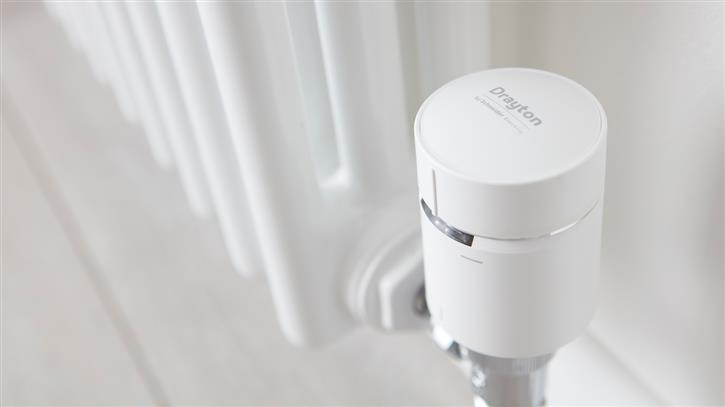


Mikael Eliaeson, Product Manager at Drayton, discusses the key features installers should look for when recommending a smart control system, and how they can benefit homeowners.
The most advanced smart heating systems can be paired with smart radiator thermostats, which allow installers to offer homeowners more control over their heating, comfort levels, and energy use.
By creating individual zones for each room, smart radiator thermostats allow homeowners to view and manage their heating schedule on a room-by-room basis and alter the temperature or schedule for individual rooms as desired. The Wiser system, for example, allows homeowners to pair up to 32 devices to create up to 16 individual zones throughout their property.
Fitting a smart multi-zone system like this in a typical three-bedroom semi-detached house can save 20% over a smart thermostat system alone.
One of the key selling features of a smart heating control system is the ability to control the heating remotely. Many homeowners do not have regular schedules, so smart controls offer a fully personalised heating system, which can be changed from anywhere.
As well as improving comfort levels for homeowners, smart controls can also go a long way towards improving energy efficiency, and helping avoid the energy wastage caused by heating spare rooms and empty homes.
This is why they have been included as one of the four additional energy saving measures required as part of any combi boiler replacement under the Boiler Plus guidelines.
Voice assistants, such as Amazon Alexa and the Google Assistant, make it easy to adjust the heating at any time. With a quick command, such as ‘Alexa, increase the living room temperatures by two degrees’, homeowners can control their heating without the need to touch the app, or move from the sofa. This can also enhance the lives of users with limited mobility, enabling them to be more independent.
It’s a common misconception that smart simply means a device is connected to the internet, when in fact it refers to much more. A control that is truly smart should incorporate self-learning technology, such as load and weather compensation, which will automatically adapt to environmental conditions, helping to enhance comfort and save energy.
For example, Wiser’s Eco Mode combines optimum stop and weather compensation to adapt heating schedules according to changing weather conditions.
For homeowners with unpredictable schedules, the latest geofencing technology found in more advanced smart controls can help manage the heating system in a more energy efficient manner.
Integration with platforms such as If This Then That (IFTTT) can enable homeowners to make the most of this technology. Using tracking apps such as Life360, homeowners can set up ‘triggers’ and ‘actions’ that determine how the heating system should react in line with user movements. For example, when the last family member leaves the house, Wiser’s Away Mode could be activated to turn the system off and prevent energy wastage.
For homeowners, this provides additional peace of mind that, if their plans change and are no longer aligned with the programmed heating schedule, the system will automatically change too.
If you'd like to keep up-to-date with the latest developments in the heating and plumbing industry, why not subscribe to our weekly newsletters? Just click the button below and you can ensure all the latest industry news and new product information lands in your inbox every week.